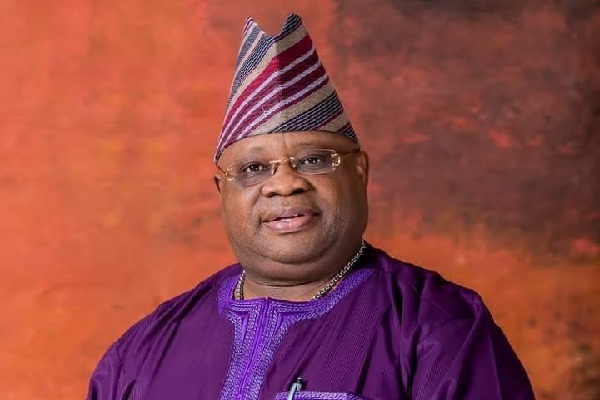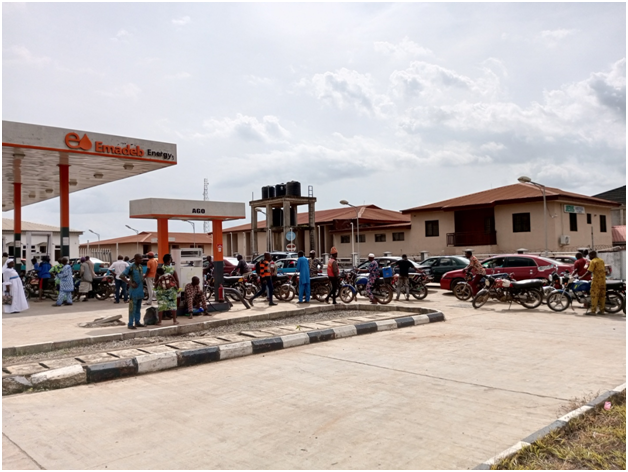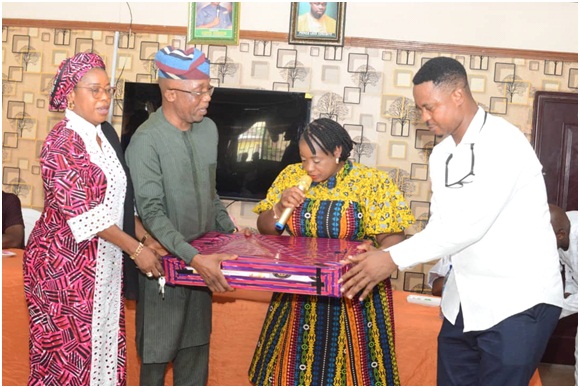Nigerian indigenous dialects in the era of civilization

By Adebowale Florence
|
There are over 500 indigenous languages spoken in Nigeria, with some of the major ones being Yoruba, Hausa, Igbo, Fulfulde, Kanuri, and Ibibio. The fate of Nigerian indigenous dialects in the era of civilization is a complex issue influenced by various factors such as urbanization, globalization, education, and media. While some dialects may face decline due to these factors, efforts to preserve and promote indigenous languages through education programs, cultural initiatives, and community engagement can help mitigate the impact of globalization and ensure their survival. Several indigenous Nigerian languages are currently facing extinction and this led to a decline in indigenous languages.
Migration to Cities: Rural-to-urban migration brings people from diverse linguistic backgrounds into cities, where there is often a dominant language or dialect spoken. As people adapt to the linguistic environment of the city, they may gradually stop using their indigenous dialects.
Economic Opportunities: Cities offer more job opportunities and better access to education, which pushes people to migrate from rural areas. In the pursuit of economic advancement, individuals may prioritize learning and using the dominant urban language over their indigenous dialects.
Social Integration: In urban areas, there is often pressure to assimilate into the dominant culture and language for social acceptance and upward mobility. This can lead to the gradual erosion of indigenous dialects as people adopt the language spoken by the majority.
Education and Media: Schools and media in urban centers primarily use the official language (English) or the dominant urban language (such as Yoruba, Igbo, or Hausa, depending on the region). As a result, children growing up in urban areas may not have the same exposure to their indigenous dialects as those in rural areas.
Language Shift: Over time, the use of indigenous dialects may decline as younger generations prefer to communicate in the dominant urban language or English, especially in formal settings. This language shift can accelerate the decline of indigenous dialects in urban areas. Efforts to address these challenges include language preservation programs, cultural festivals, and community initiatives aimed at promoting the use of indigenous dialects in urban settings. However, the impact of urbanization on Nigerian indigenous dialects remains a significant challenge in the country’s linguistic landscape.
Furthermore, globalization has profound effects on Nigerian indigenous dialects, often resulting in both positive and negative outcomes.
Positive Effects of Globalization on Indigenous Language
Cultural Exchange: Globalization facilitates cultural exchange, allowing Nigerian indigenous dialects to be shared with a global audience through music, literature, and other forms of artistic expression. This exposure can foster appreciation and interest in these languages beyond Nigeria’s borders.
Economic Opportunities: Globalization opens up economic opportunities for Nigerians, including those who speak indigenous dialects. As businesses engage in international trade and investment, there is a growing demand for multilingual individuals who can communicate effectively in both indigenous dialects and global languages like English.
Language Revitalization Efforts: Increased awareness of language endangerment due to globalization has spurred efforts to revitalize and preserve Nigerian indigenous dialects. Organizations and communities are implementing language documentation projects, educational programs, and advocacy campaigns to promote the use of indigenous languages.
Negative Effects of Globalization on Indigenous Language
Language Shift: Globalization often leads to language shift, with younger generations opting to use global languages like English or dominant urban languages instead of their indigenous dialects. This shift can result from factors such as education, media influence, and economic opportunities tied to proficiency in global languages.
Homogenization of Culture: Globalization can contribute to the homogenization of culture, as Western norms and values become more prevalent through media, technology, and consumer products. This can marginalize indigenous languages and dialects, as they may be perceived as less relevant or prestigious compared to global languages.
Loss of Linguistic Diversity: The spread of global languages can contribute to the loss of linguistic diversity, as smaller languages are marginalized or endangered. In Nigeria, this trend threatens the rich tapestry of indigenous dialects spoken across the country, with some languages facing extinction if efforts to preserve them are not intensified.
Also, education plays a significant role in shaping the fate of Nigerian indigenous dialects which includes the following:
Language Policy: Education policies often prioritize the teaching of official languages such as English, which is used as the medium of instruction in schools. This can marginalize indigenous dialects, as they may not receive the same level of attention or support in the education system.
Language Shift: Formal education can contribute to language shift as students become proficient in the language of instruction, often at the expense of their indigenous dialects. As children spend more time learning and using the official language in schools, they may gradually lose fluency in their native dialects.
Cultural Identity: Education can either reinforce or erode cultural identity depending on how it incorporates indigenous languages and cultures into the curriculum. Efforts to promote the teaching of indigenous dialects in schools can strengthen cultural pride and identity among students, fostering a sense of belonging to their linguistic community.
Literacy and Literature: Education can contribute to the preservation and promotion of indigenous dialects by fostering literacy in these languages and supporting the creation of literature and educational materials in indigenous languages. Access to books, newspapers, and other resources in indigenous dialects can help sustain these languages across generations.
Bilingual Education: Bilingual education programs that integrate indigenous dialects alongside the official language can support students in maintaining proficiency in both languages. By recognizing the value of indigenous languages in education, these programs contribute to language preservation and the empowerment of linguistic minorities.
In addition, the media, including television, radio, film, and the internet, has significant effects on Nigerian indigenous dialects and this applies in the following areas:
Language Visibility: The media provides a platform for the visibility and promotion of indigenous dialects. Radio and television programs, as well as online content, can showcase indigenous languages, music, and cultural expressions, thereby raising awareness and pride in these languages among the general population.
Language Standardization: In some cases, the media can contribute to the standardization of indigenous dialects by providing a common platform for speakers from different regions to share linguistic norms and conventions. This can help establish a standardized form of the language for use in broadcasting and other media content.
Language Shift: On the other hand, exposure to dominant urban languages or English through the media can accelerate language shift away from indigenous dialects, especially among younger generations. As media content predominantly uses global or urban languages, viewers may gradually adopt these languages at the expense of their native dialects.
Preservation Efforts: Some media initiatives focus on preserving and revitalizing indigenous dialects through language-based programming, educational content, and community engagement. These efforts aim to promote language use, literacy, and cultural heritage among speakers of indigenous languages, particularly in regions where these languages are at risk of decline.
Language Mixing and Code-Switching: The media can influence language use patterns, leading to phenomena such as language mixing and code-switching, where speakers alternate between indigenous dialects and other languages. This can result in the emergence of hybrid linguistic forms that reflect the diverse linguistic repertoire of Nigerian speakers.
The effects of parents on indigenous language extinction are significant. Parents play a crucial role in language transmission to their children. When parents stop speaking their indigenous language to their children in favor of a dominant language, it accelerates language loss within the community. This intergenerational transmission is vital for language survival, and without it, the language may face extinction within a few generations. Parents who value and actively teach their indigenous language to their children can help preserve and revitalize it for future generations.
In summary, civilization presents both opportunities and challenges for Nigerian indigenous dialects. While it can facilitate cultural exchange and economic opportunities, it also poses risks to linguistic diversity and the continued vitality of indigenous languages. Efforts to promote language preservation and revitalization are crucial in mitigating the negative effects of globalization on Nigerian indigenous dialects. Furthermore, Nigerian indigenous dialects depend on the language policies, curriculum decisions, and support systems in place within the education system. Efforts to promote linguistic diversity, cultural heritage, and inclusive education practices are essential for supporting the vitality of indigenous dialects in Nigeria.
The media’s impact on Nigerian indigenous dialects is multifaceted, with both positive and negative consequences. While the media can contribute to language visibility and preservation efforts, it can also exert pressures that contribute to language shift and linguistic homogenization. Efforts to promote the use of indigenous dialects in media content and to support linguistic diversity are essential for ensuring the continued vitality of these languages in Nigeria.
Moreover, the museum and other relevant authorities need to work towards sustaining Nigerian indigenous languages as this will help mitigate their extinction. It will further aid the development of our local technology and advancement because this indigenous dialect is not just a means of communication but also our cultural identity.












